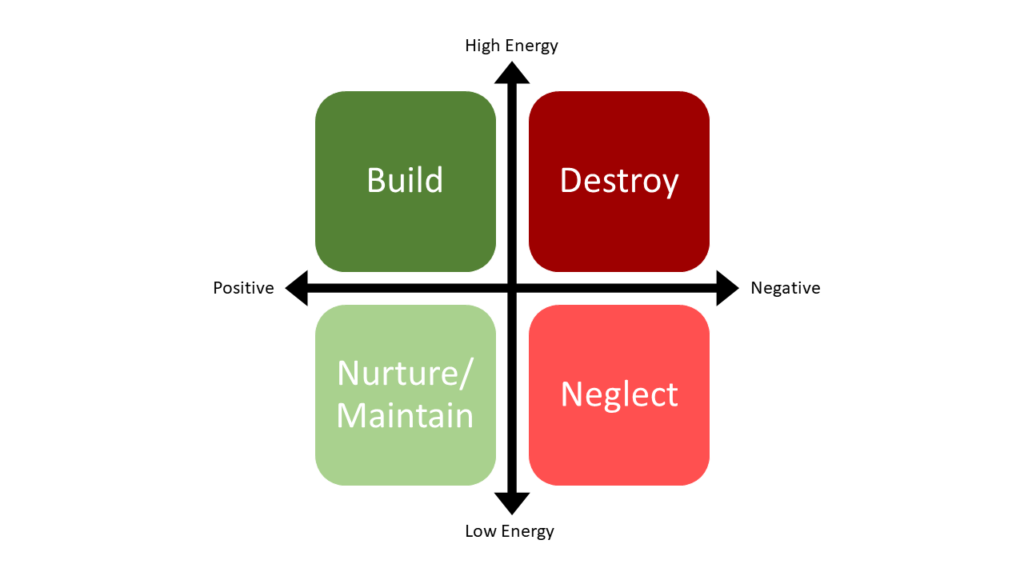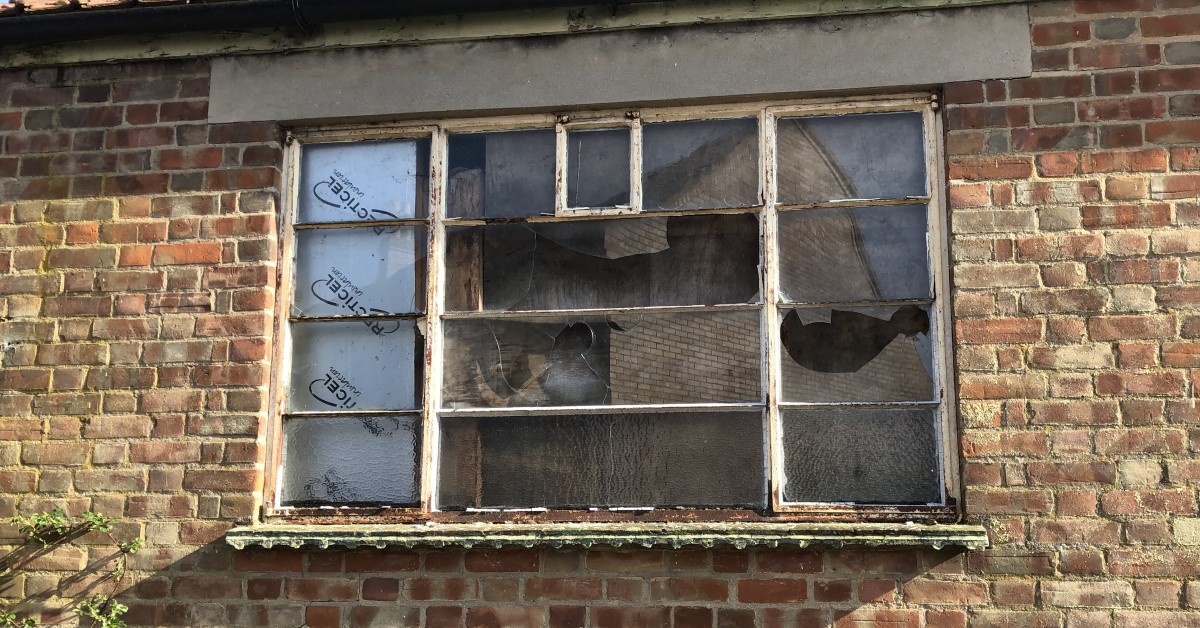Whether or not it’s something you actively think about, the actions you take now will leave some kind of mark in the future.
The world ‘legacy’ can be slightly misleading. It conjures images of large sums of money being left in a will, or a fantastic business empire being passed on to a new CEO. But anyone can leave a legacy, in any walk of life – personal or professional – and the question to ask yourself is: ‘Are you a builder or a breaker?’
Do you want to feel that you created something worthwhile that others will appreciate after you have moved on? Or is making the most of what you have now your priority?
The four core mindsets
My personal answer to the question of being a builder or a breaker is that I’d like to leave something of benefit. To me, it’s obvious that it’s my duty to take what I have been given and make it better – or at the very least, to take good care of it. After all, there are worse epitaphs than ‘She made things a little bit better’.
But as with anything, there are alternative ways of looking at the world. For some people the most important thing is recognition – at any cost. If they can’t get recognition for something positive, then the infamy of destruction is just as effective. They made a mark – even though it’s a scar.
(I think this is what we are seeing in the tragedy that is playing out in Ukraine just now. Putin wants his legacy to be a strong Russia – and is happy to have thousands of lives destroyed to reach that aim. It looks like he is not even too bothered now about damaging Russia to maintain his image of being a strong man.)
As I see it, there are four core mindsets:

Destroyer.
Negative and high energy. These people want to make BIG statement and don’t care how they go about it. Destruction is a means to an end, possibly there is also an element of the Dog in the manger. ‘If I can’t have such and such, neither can you.’
Neglectful.
Negative and low energy. This quadrant is all about sliding into decay through inaction. Lack of care and lack of energy allow entropy to take effect and the situation/system/object begins to deteriorate. Maybe it’s laziness, or maybe it’s lack of understanding or sense of agency.
Parkinson touches on this in his essay ‘Injelititus,’ which begins:
“We find everywhere a type of organisation …. in which the higher officials are plodding and dull… Little is being attempted. Nothing is being achieved.”
C Northcote Parkinson, from Parkinson’s Law, 1957
Maintaining. Caring. Nurturing.
Positive and low energy. This quadrant is all about maintaining and keeping things going – building on what has come before, rather than creating anything new.
Not everyone can be an Elon Musk or a Steve Jobs (thank God…) but this kind of mindset is crucial to keep the wheels of the world turning.
Building. Creating from new.
Active and high energy. This sector is the most difficult to be active in. Creating completely new, successful enterprises or undertaking activities building from scratch, is not something everybody can achieve all the time – whatever popular podcasts by entrepreneurs may suggest!
Moving between quadrants
Although you may recognise yourself operating most often in one of the quadrants, you might also be thinking of times when your actions put you squarely in one of the others. Most of us will have been guilty of neglecting things from time to time, and most of us will also have created something from scratch.
The energy and dedication that is needed to operate in the building quadrant, can easily be directed into frustration and negative energy. In a fit of pique it’s possible to direct the energy into destruction rather than building.
Sometimes, to achieve a goal, we need to move between all segments. When I was renovating my first house, I needed to remove some ugly built-in furniture and strip blown plaster from the walls before I could start to renovate and rebuild.
It’s also not possible to do everything. Making an active decision what activities you can safely assign to the ‘neglect’ quadrant might help you free up your time to spend on things you really value.
What will be your net effect?
And so – back to the first question: what kind of legacy do you want to leave? Will you be remembered as a builder or a breaker? Or just that person who helped make things that little bit better?

